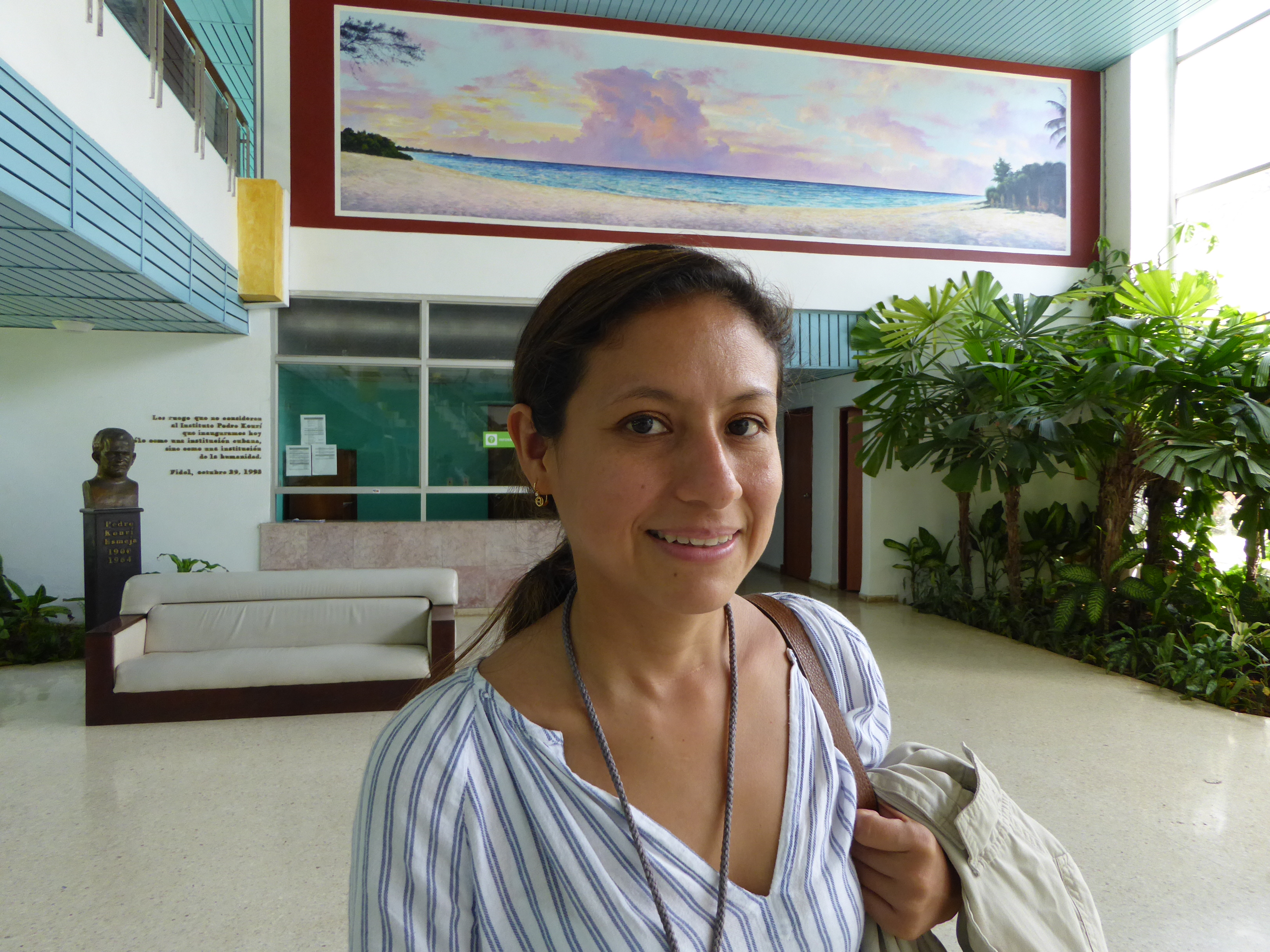This article is part of the network’s archive of useful research information. This article is closed to new comments due to inactivity. We welcome new content which can be done by submitting an article for review or take part in discussions in an open topic or submit a blog post to take your discussions online.
Dra Carmen Soria is a clinician and PI for ZIKAlliance (Work Package 1) in Ecuador. She represents SOSECALI C Ltda. and is physically based in Guayaquil.

What work do you do related to Zika – and to ZIKAlliance?
I am the PI for Ecuador and we are recruiting pregnant women in Guayaquil.
How many suspected and confirmed cases of Zika have you seen in your area of enrolment?
We have had 3 suspected cases and 2 confirmed cases. We have enrolled 47 women and tested around 30 of them.
How many sites do you enrol patients in?
We have one site, in a Social Security Hospital.
Has it been easy or difficult to enrol patients to this study, and why?
It has been easy to enrol patients in the Social Security study site; they usually want to participate. But it is more difficult to enrol in the private clinic. I don’t know why it is difficult, it could be the time or that they want to talk their husbands or family members first, and we can’t enrol them at the first visit.
Do people in your enrolment area care about Zika, and what do you do to communicate with them?
They are worried because we are in an outbreak situation, and they get other information in the media- in the hospital they have posters and flyers about Zika, it is more about the media and the messages they transmit. They would be less interested due to media involvement.
Why did you want to participate in ZIKAlliance?
I like the research and the people working with us as well, as we don’t have a big group or institution in Ecuador. So it is more a personal initiative, and we are obviously interested in Zika in newborns. I have worked with Thomas Jänisch before, on the validation of dengue guidelines, which was a new classification at the time.
What do you consider the biggest challenge(s) to participating in this project?
Everything, as we don’t have a group or team – we don’t have administrations to coordinate the hospitals, labs, and the information from the consortium. The first challenge in the country is the local research infrastructure.
So far, what would you say is the best thing about being part of this project?
The sharing of knowledge, many of the people participating are writing about Zika and giving us information about new findings. To meet people from other countries, receive information, and sharing experiences, even within Latin America - what’s been done, and we can implement it in Ecuador.
Where do you think we are in understanding and fighting Zika in five years’ time?
Perhaps we will know about the whole spectrum of outcomes and host defences - not just at the delivery of a newborn, but information two years after birth. We will understand how the outbreak will develop over time, and why we see differences between countries.
And what do we need to do to get there?
Research, we need infrastructure - and we need the people in the affected countries to be conscious about Zika.